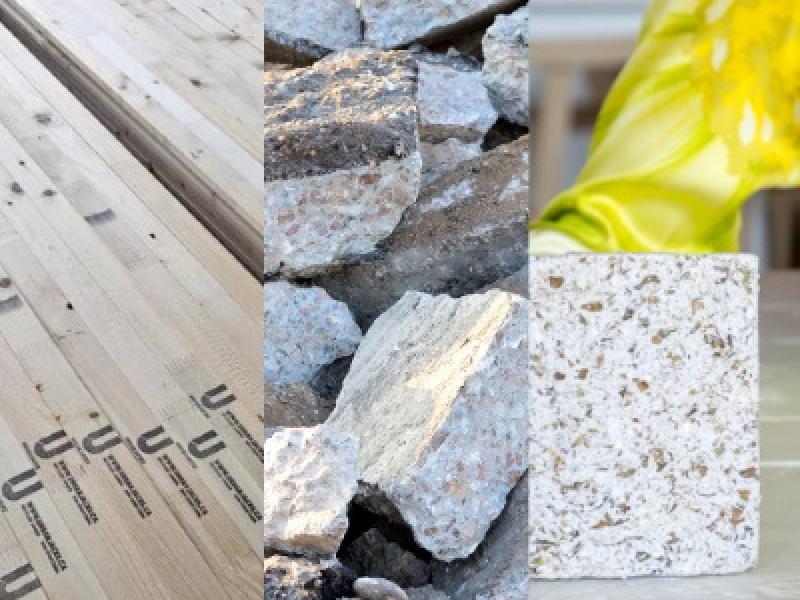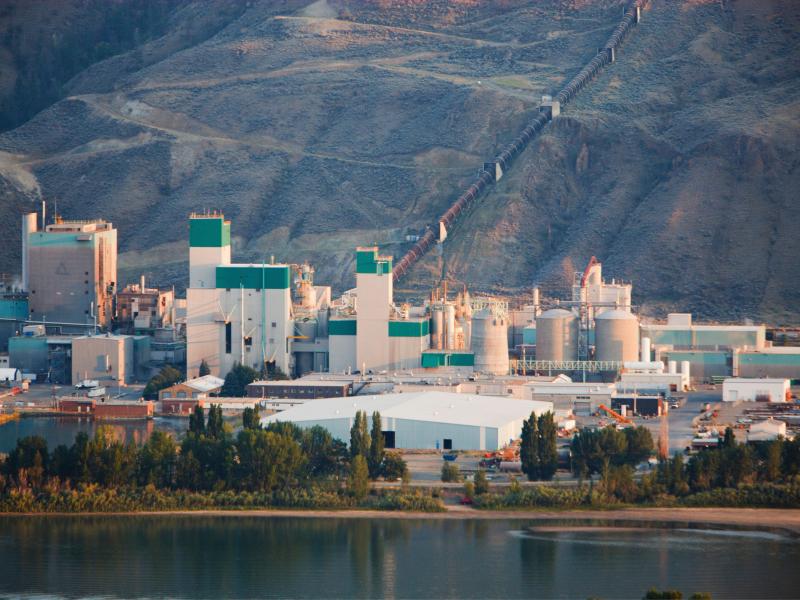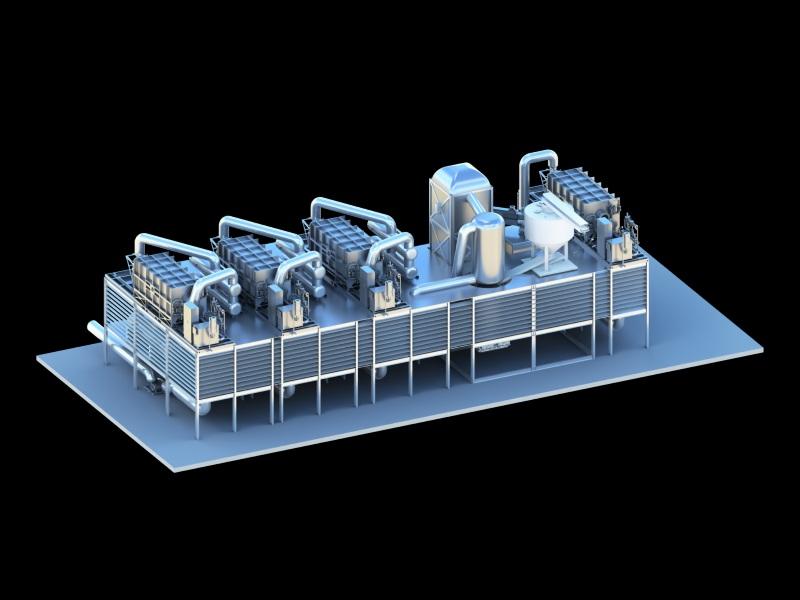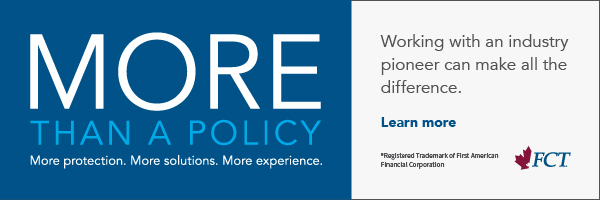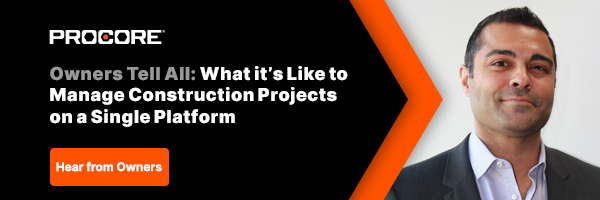Recent Articles
Most N. Americans don’t trust building air, water quality
Most N. Americans don’t trust building air, water quality
As economies reopen and Canada enters a fourth wave of the pandemic, Clear Inc. and Savanta conducted a survey, revealing 73 per cent of North Americans do not feel confident in the air and water quality in offices or condominiums.
Lululemon invests in sustainable materials company
• Business of Fashion • Sustainable Brands
Lululemon announced it will be using the company’s bio-based materials for future products. Genomatica makes plant-based nylon, which Lululemon said will be replacing some conventional nylon it uses for its workout apparel.
Scotiabank wins at 2021 Sustainable Finance Awards
• Cision
Scotiabank has been recognized for its Outstanding Global Leadership in Sustainability Transparency at the inaugural Global Finance Sustainable Finance Awards. The bank was also awarded Outstanding Leadership in Sustainable Project Finance, among others, in the North American category.
Saxberg, Calgary oil king, switches to green energy
Scott Saxberg’s latest startup is Calgary-based Cache Island Corp., which he describes as an “energy transition” company. The business plan is to use cash from the company’s oil assets in Alberta and Saskatchewan to fund three solar farms.
BHP may have exited oil and gas at the right time
The market has not supported BHP Group’s proposed exit from the oil and gas industry, with Woodside Petroleum‘s shares tumbling as a result. However, oil and gas assets may be taking the same path as coal.
Sweden delivers world’s 1st fossil-free steel
Swedish green steel venture HYBRIT has made the world’s first customer delivery of steel produced without using coal, as the company looks to revolutionize an industry that accounts for around 8 per cent of global greenhouse gas emissions.
Laser fusion nears crucial point in energy generation
Scientists working with the world’s most powerful laser are raising the temperature and pressure of matter so high that it starts producing more energy than it takes to put in that state, which could lead to a carbon-free energy solution.
Sustainable travel inspires Canadian conservation
Sustainable travel is more than just buying a carbon offset for a flight or ditching plastic water bottles; it is also about protecting cultural heritage and supporting local communities. More travellers planning getaways are now considering immersive nature escapes.
Smaller offices can lead industry on reducing carbon
Research by investment manager Lateral indicates that up to 70 per cent of refurbishment carbon emissions could be saved by more environmentally conscious forms of fit out and design.
Hydro-Québec, Autobus support electric school buses
• Cision
To facilitate and support the electrification of commercial vehicles, Hydro-Québec announced a pilot project with Autobus Groupe Séguin, a Québec-based, family-owned company that operates in the field of school and chartered transportation. Autobus Groupe Séguin ordered 60 electric school buses in 2021.
Conservation finance should not sell itself short
• GreenBiz
The 2021 Conservation Finance Boot Camp taught participants techniques for raising capital to preserve natural habitats. Eric Hallstein of The Nature Conservancy stated that the world needs to generate $700 billion to truly preserve ecosystems.
50 shades of green: EU sustainable rules muddy waters
• Reuters
Under new European Union rules, investing in sustainable funds may result in money owed to shares in oil companies, mining conglomerates or tobacco firms. Managers are adopting strategies to justify the sustainable label, according to a Reuters analysis.
The business imperative of ESG
A recent study discovered shifts in thinking from both brand and consumer values: The gap between what they believe and how they are acting on such beliefs is narrowing, particularly when brands make sustainability accessible and affordable.
Corporate boards’ roles in ESG oversight
In recent years, definitions of ESG materiality have evolved very quickly. This rapid evolution asks more of corporate boards in terms of their oversight of ESG risks and opportunities and raises questions about board composition.
ESG advice from Diligent’s ESG Center of Excellence
Matt DiGuiseppe, head of Diligent’s ESG Center of Excellence, discusses starting the ESG process and picking a framework. DiGuiseppe suggests starting with a framework like SASB or the one from the World Economic Forum.
Switzerland lays out climate disclosure timeline
The Swiss government joined countries that have set timelines for companies to disclose the risks they face from climate change. Global powers have been calling for more co-ordination on efforts to measure and declare companies’ environmental impact.
West Virginia startup sustainably rehabilitates coal mines
Former strip mines aren’t the first place you think of when it comes to sustainable agriculture, beekeeping, or the wellness industry. But a project in southwestern West Virginia, called Appalachian Botanical Company, is looking to change that and rehabilitate mining land.
Meltdown conditions no sweat for passive cooling
Passive House design withstood meltdown conditions in a recent duel with the Scottish building code. Glasgow, which will host the upcoming 2021 UN Climate Change Conference (COP26), provided the venue to test and compare the thermal performance of two identically-sized structures.
Several states working on phasing out HFCs
• GreenBiz
Hydrofluorocarbons (HFCs) are greenhouse gases used in refrigeration and are the reason grocery stores are about to become ground zero for efforts to keep the planet cool. Several states are already working on phasing out HFCs.
EVs are 40% cheaper than ICE vehicles
Despite electric vehicles being more costly than gas-powered vehicles, a study from the U.S. Department of Energy’s Argonne National Laboratory finds the cost to drive and maintain an EV is actually lower than an internal combustion engine (ICE) vehicle.
 Industry Events
Industry Events
-
ECO IMPACT 2026
Feb 19 2026
to Feb 20 2026
The Westin Calgary
-
BuildGreen Atlantic
Apr 27 2026
to Apr 28 2026
Halifax, NS
-
The Evergreen Conference
May 06 2026
to May 07 2026
Toronto, ON
-
Building Lasting Change
Jun 17 2026
to Jun 19 2026
Montréal, QC
-
Retrofit Canada Conference
Jun 24 2026
to Jun 25 2026
Halifax Convention Center


